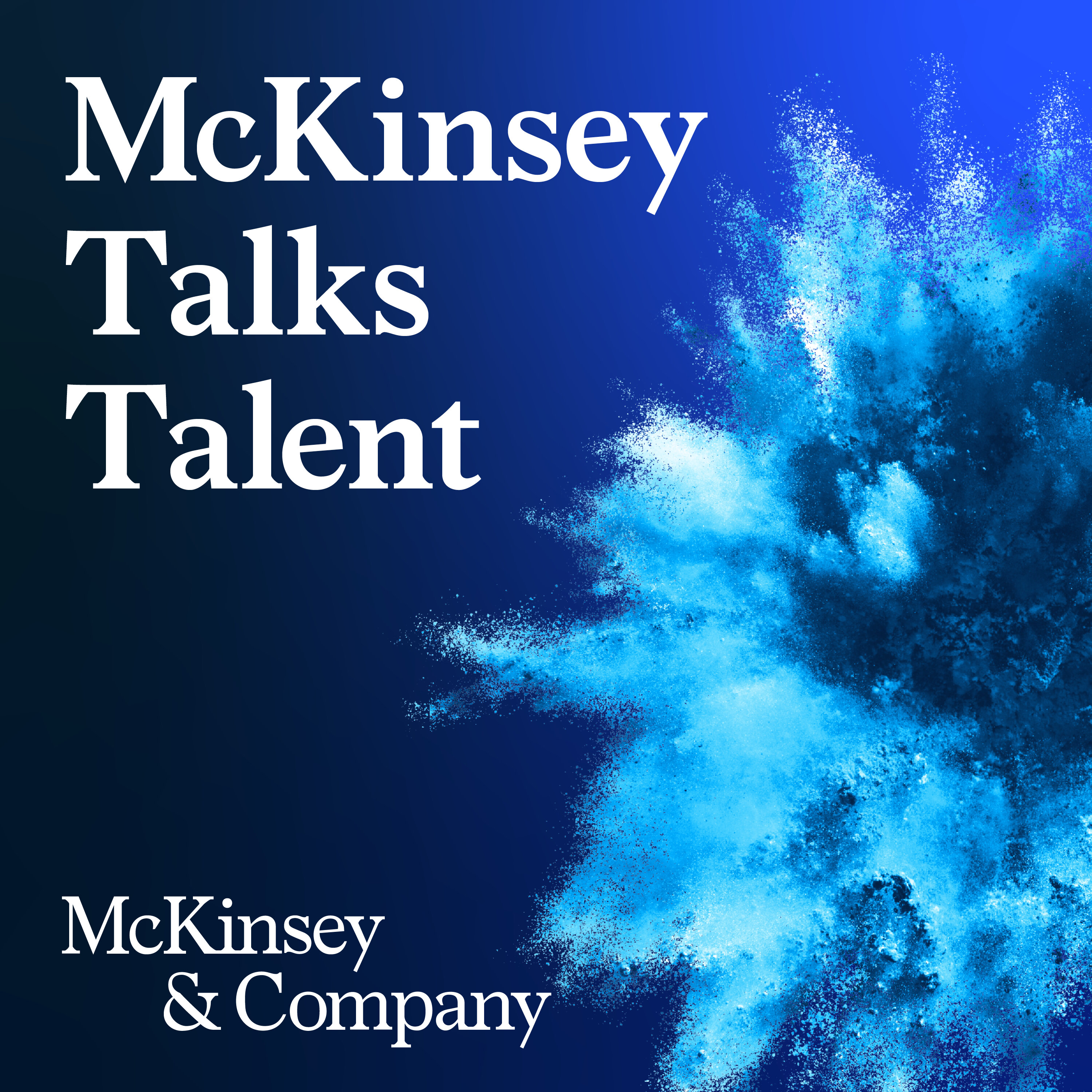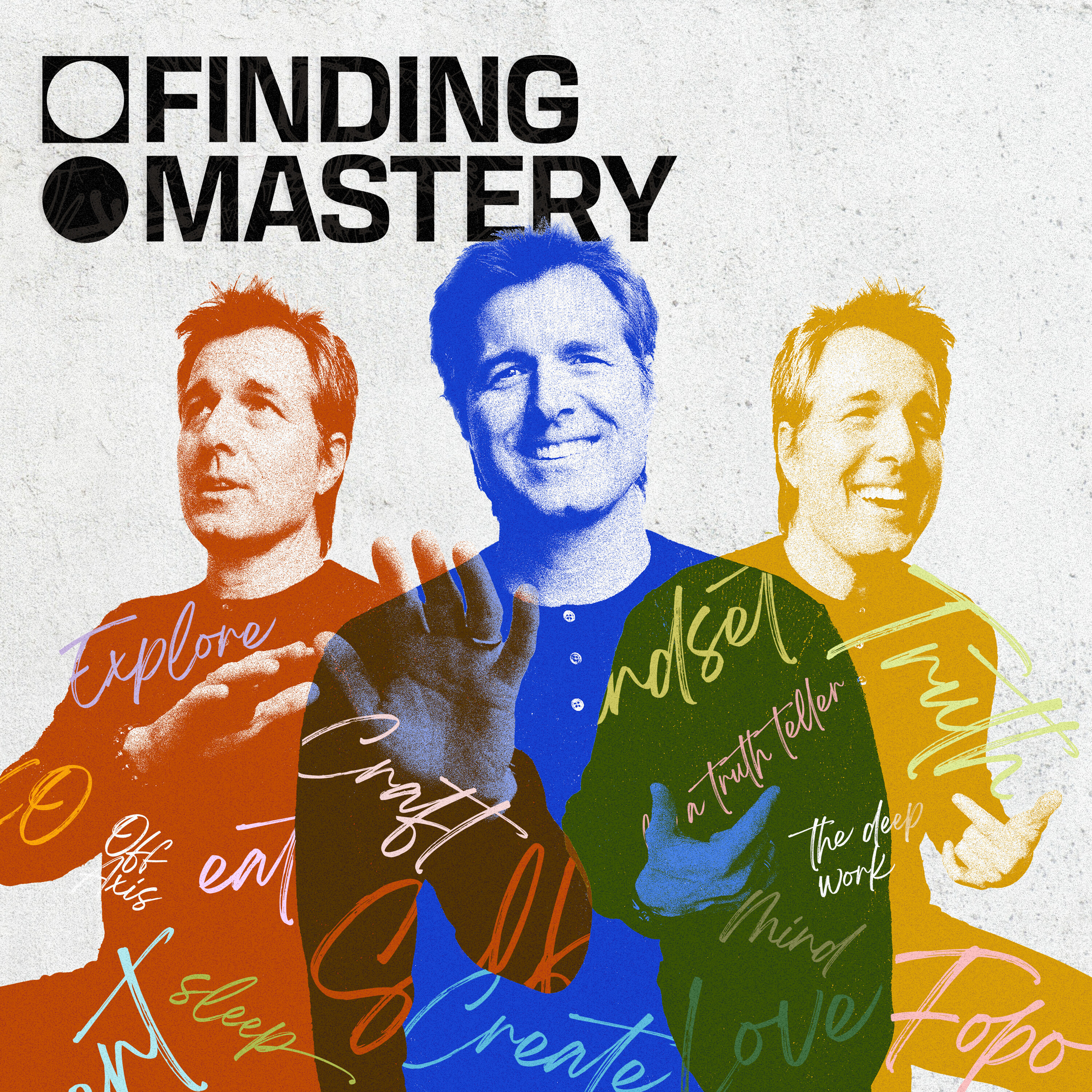Leading People
Gerry Murray talks to leading people about leading people. Get insights and tips from thought leaders about how to bring out the best in yourself and others.
Leading People
How to Take Back Control of Your Inbox
In this episode…
Taking back control of your inbox might be the most important productivity shift you make as a leader.
Have you noticed how email has transformed from a helpful tool into the central focus of your workday? That subtle shift has massive consequences for your effectiveness, focus, and the example you set for your team.
In this actionable One Simple Thing episode, I tackle the modern challenge of email addiction that's plaguing knowledge workers everywhere. We've normalized checking messages before breakfast, during meetings, and sometimes even in the bathroom!
This constant reactivity comes with serious costs: increased anxiety, decision fatigue, fragmented attention, and ultimately, lower quality work. As leaders, we're not just managing our own productivity – we're modeling behaviors that our teams will likely adopt.
The solution doesn't require complex systems or productivity hacks. I share four straightforward strategies that have transformed how I handle over 30 emails in under 10 minutes most mornings.
You'll learn how to establish strategic checkpoints throughout your day, implement a quick-response system, block focused time for thoughtful replies, and set clear expectations with colleagues.
The key insight?
Email should serve your priorities, not the other way around.
This small shift delivers outsized benefits:
- reduced stress
- improved focus
- better work quality
- and the powerful example of intentional leadership.
Small steps truly can lead to big changes.
Curious?
🎧 Listen now and take back control of your day...
Test out implementing just one of these strategies this week and notice the difference in your day.
I'd love to hear how it transforms your approach – connect with me on LinkedIn and let me know your results!
Follow
Leading People on LinkedIn
Leading People on FaceBook
Connect with Gerry
Website
LinkedIn
Wide Circle
Welcome to Leading People with me, gerry Marais, this week. It's One Simple Thing, where in each episode, I share a quick, actionable tip to help you bring out the best in yourself and others. One Simple Thing is created for young leaders, but hey, us older folks can still learn a thing or two. Ask my dog. He's learned a few new tricks recently. Here's a question for you what's the first thing you do when you start your workday, If you're in any kind of knowledge-based role? Your answer might be I check my emails or messages, and hey, I get it. We've been trained to do this. But here's the thing Unless email is your most important task, or your job literally revolves around responding to emails, it may not be the best way to start your day.
Speaker 1:Today, I want to show you how to stop letting your inbox run your day and start running your inbox. 20 or 30 years ago, email was a tool that helped us get things done. Now it is the work for many people, and that's a problem, because email has slowly crept into every corner of our lives. We read emails before breakfast, during meetings and sometimes in the bathroom. Email is now a source of constant reactivity, and that comes with consequences Anxiety, decision fatigue, poor focus and lower quality work. As a leader, you're not just managing your own inbox, you're modeling how others should manage theirs. Managing your own inbox, you're modelling how others should manage theirs. So let's flip the script. Let's make email serve you, not constantly.
Speaker 1:Here are four things you can test out for yourself. Number one block time in your calendar to check and respond to emails. I suggest that you set three checkpoints in your day Mid-morning, say, around 10.30. Mid-afternoon, around 2 or 3 o'clock and at the end of your workday, around 5 or 6 o'clock. During your first check, deal with quick replies immediately. For longer responses you can flag the email and assign it to what I'm calling your afternoon processing. Block Number two use a system my own method. I go through around 30 plus emails in around or under 10 minutes most mornings. I respond fast to what's easy, I flag those mails that need more time and I archive or delete the rest. Number three Block a dedicated hour in the afternoon for thoughtful responses. I suggest just after lunch, from 2 to 3 pm, where you take no meetings. If you finish early it's a bonus. Go take a short walk. It's good for your brain after focused work. Number four Set expectations with your team, colleagues or clients. One easy way to do this is to use a friendly out-of-office message or auto-reply to let people know you're not constantly checking your inbox, because you're either in meetings, on a training course or doing deep work and perhaps a bonus tip.
Speaker 1:Number five stay intentional. Even if you do need to check your mails more often, it's you who decides when and where, not your inbox. So let's recap this one small shift gives you back control of your day, reduces anxiety and overwhelm, improves focus, results and shows your team what intentional leadership looks like. You get more done in less time and you're more present when your people need you. I'd say you've got this now, so go do it and set an example for your team.
Speaker 1:In future episodes I'll address several other ways in which you, as a leader, can get even better at dealing with emails, and that's another One simple thing. Thanks for tuning in. Remember, small steps can lead to big changes. Test out this one simple thing and notice how it transforms your day. Let me know how you get on. Reach out on LinkedIn and connect with me. Mention the podcast and if you'd like to learn more One Simple Things, then subscribe to this podcast on your favorite podcast channel and follow our LinkedIn Leading People page. In our next episode of One Simple Thing, we'll explore another easy way to be a great leader by bringing out the best in yourself and those around you. And in between, you can check out one of my longer conversations with leading people about yes, you've guessed it leading people. So until then, keep exploring and stay curious.
Podcasts we love
Check out these other fine podcasts recommended by us, not an algorithm.

The Josh Bersin Company
Josh Bersin
McKinsey Talks Talent
McKinsey People & Organizational Performance
The News Agents
Global
The News Agents - USA
Global
Digital HR Leaders with David Green
David Green
Be Worth* Following
Tim Spiker
HBR On Leadership
Harvard Business Review
Economist Podcasts
The Economist
The Habit Mechanic - Unlock your Human-AI Edge
Dr. Jon Finn